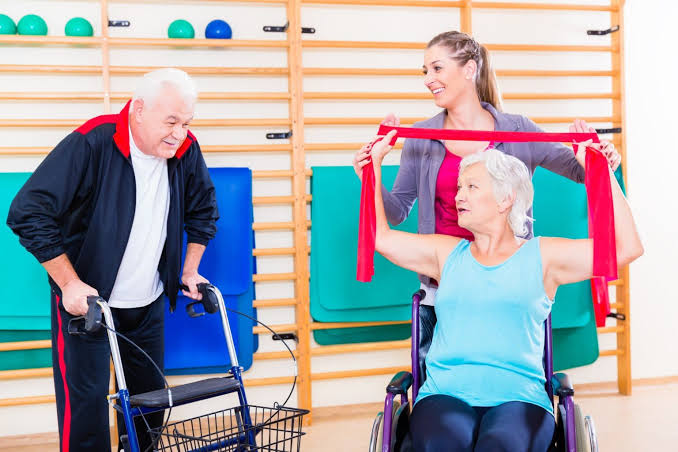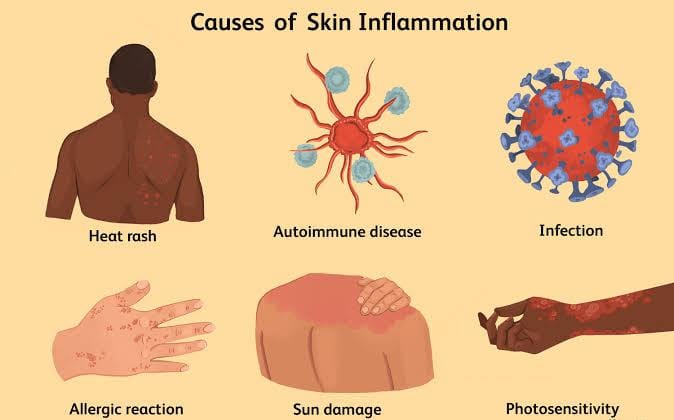Enhancing Mobility: Physiotherapy Strategies for Managing Neurological Disorders in Geriatric

In the realm of geriatric healthcare, physiotherapy emerges as a vital tool in managing the complexities of neurological disorders. As aging brings about natural changes in mobility and function, understanding how physiotherapy can address the unique needs of older adults is essential for optimizing their quality of life. Join us as we explore the role of physiotherapy in managing neurological disorders in geriatric patients, uncovering strategies for enhancing mobility, function, and overall well-being.
Understanding the Impact of Neurological Disorders
Neurological disorders such as stroke, Parkinson's disease, and dementia can significantly impair mobility and motor function in geriatric patients. Muscle weakness, balance problems, and coordination difficulties are common challenges that affect independence and quality of life. Physiotherapy plays a crucial role in addressing these issues, offering tailored interventions to improve mobility, reduce pain, and enhance overall function.
Stroke Rehabilitation: Restoring Function and Independence
For geriatric patients recovering from a stroke, physiotherapy is a cornerstone of rehabilitation. Through targeted exercises, gait training, and functional tasks, physiotherapists work to restore mobility, strength, and coordination. Stroke rehabilitation also focuses on addressing spasticity, managing pain, and promoting independence in activities of daily living. With a comprehensive approach to care, patients can regain function and optimize their recovery post-stroke.
Parkinson's Disease Management: Addressing Movement Disorders
Parkinson's disease presents unique challenges for geriatric patients, affecting movement, balance, and coordination. Physiotherapy interventions such as targeted exercises, balance training, and gait retraining can help manage symptoms and improve mobility. Additionally, physiotherapists may incorporate strategies to address the freezing of gait, enhance posture, and optimize function in daily activities. By tailoring interventions to the specific needs of each patient, physiotherapy plays a vital role in managing Parkinson's disease and promoting optimal function and quality of life.
Dementia Care: Promoting Physical Activity and Well-Being
In the context of dementia, physiotherapy focuses on promoting physical activity, maintaining mobility, and enhancing overall well-being. Gentle exercises, range of motion activities, and functional tasks can help preserve muscle strength, flexibility, and balance. Physiotherapists also work closely with caregivers to provide education and support in managing mobility challenges and reducing the risk of falls. By incorporating physical activity into daily routines, physiotherapy empowers geriatric patients with dementia to maintain independence and engage in meaningful activities.
Holistic Approach: Tailoring Care to Individual Needs
In the realm of physiotherapy for geriatric patients with neurological disorders, a holistic approach is essential. Physiotherapists consider the unique needs, abilities, and goals of each patient, tailoring interventions to optimize outcomes and enhance overall well-being. By addressing physical limitations, promoting functional independence, and supporting the individual's overall health and wellness, physiotherapy plays a vital role in empowering geriatric patients to live life to the fullest despite the challenges of neurological disorders
Empowering Mobility, Enhancing Quality of Life
In conclusion, physiotherapy emerges as a powerful tool in managing neurological disorders in geriatric patients, offering strategies to enhance mobility, function, and overall well-being. Through personalized interventions, tailored exercises, and holistic care, physiotherapists empower older adults to navigate the complexities of neurological conditions with resilience, dignity, and improved quality of life.
Recommended Articles
Understanding Inflammation: Causes, Management, and the Role of Physiotherapy
Inflammation is a natural defense mechanism of the body that plays a critical role in healing and protecting against harmful stimuli like infections, injuries, or toxins. However, when inflammation becomes chronic or unmanaged.
Read More
Enhancing Mobility: Physiotherapy Strategies for Managing Neurological Disorders in Geriatric
In the realm of geriatric healthcare, physiotherapy emerges as a vital tool in managing the complexities of neurological disorders. As aging brings about natural changes in mobility and function, understanding how physiotherapy can address the unique needs of older adults is essential for optimizing their quality of life. Join us as we explore the role of physiotherapy in managing neurological disorders in geriatric patients, uncovering strategies for enhancing mobility, function, and overall well-being.
Read More
Ice and Heat Therapy: A Guide for Acute and Chronic Conditions in Physiotherapy
Understanding when to use ice or heat therapy is crucial for effectively managing both acute and chronic conditions. Let's explore how these therapies are applied in different scenarios to promote healing and alleviate pain
Read More



